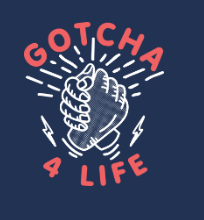In the line of work Gus Worland does, he sees a lot of men suffering because they’re not allowed to express their grief and other sad emotions. It’s something he’s challenging.

Gus’s work is about helping men to cope better with grief and other negative emotions. Gus believes we need to change our culture so that young men are able to talk about what’s troubling them, to open up and share their pain when it hits because the consequences are too high if they don’t.
“A young man in certain age groups in this country is more likely to die by suicide than from anything else. So we’ve got a problem here that we need to fix,” he said.
Suicide is now the leading cause of death for Australian men aged 15-44.
“So many young men tell me that they do their crying in the shower because no-one will hear them. That’s because in our culture it’s not okay for a boy or a young man to say he’s not feeling okay,” said Gus.
And not being able to say that is where it leads to trouble. Think of this scenario. A young woman volunteers for the Rural Fire Service and shares with her family the trauma of what she saw. She starts to cry as she’s telling the story. The experts say that’s good because she’s less likely to suffer from PTSD (post-traumatic-stress-disorder) if she talks about it, shares her experiences, shares her feelings and takes comfort from the supportive hugs of others.
But what if that same person is a young man? The same need to let it all out is there. But he’s got to be macho. And because he has to be macho he won’t talk about it, and he’ll act tough about it….and then be at a much higher risk than her of suffering from PTSD.
“Why is it that in our culture the only conversations a man can have are about sport, the weather, jokes, or work? That’s all so superficial, and it’s just rubbish. Yet the really important, deeper conversation can’t be had,” said Gus.
Gus believes the rules about how to be a man, that were set a long time ago need to change. They need to be adapted from what was good for, say, Gus’s grandfather, to what is good for his son.
“I hope that for men coming through now and in the future, it will be a lot more okay for them to talk about their ‘mental fitness’ – that’s a better expression than ‘mental health’. I hope it will be a lot more okay to be able to reveal to others that you’re feeling vulnerable,” he said.
The best way we can help young men to manage grief and the powerful emotions that we’re not supposed to show, is to allow them to be honest about them, he said.
“There is so much negativity in our culture about being sad. Grief is okay. in fact, it’s good to be able to experience and feel a range of emotions and for that to take us to places we don’t normally want to go to. Being allowed not to bullshit about what’s really happening when we’re feeling vulnerable is just honest.
“And we need to make sure that our young men aren’t worrying alone, that they can share and talk and be listened to, and that they know it’s okay for someone to put their arm around them, because these are the things we do to heal.”
Worland’s social enterprise was prompted by the suicide of a mate, when Gus realised the full impact of ‘suicide contagion’ for young men, especially in our culture. Through his Man-Up ABC television series, Gus was able to show that the most resilient men are actually the ones who are able to express emotion – even the bad and sad ones.
The tough-guy persona that men are expected to live up to can, as Gus says cause them to crack.
So the man who’s able to cry and show vulnerability does better. The reasons might seem obvious to their grannies, but they’re not to the corporate world where most men are expected to conform and compete.
So ‘Gotcha4Life’ is about “Building Mental Fitness – Social Connection, Emotional Muscle, Resilience.”
For more about Gotcha4Life and to get involved, go to:
To find out more about the Man Up series go to: http://manup.org.au/
